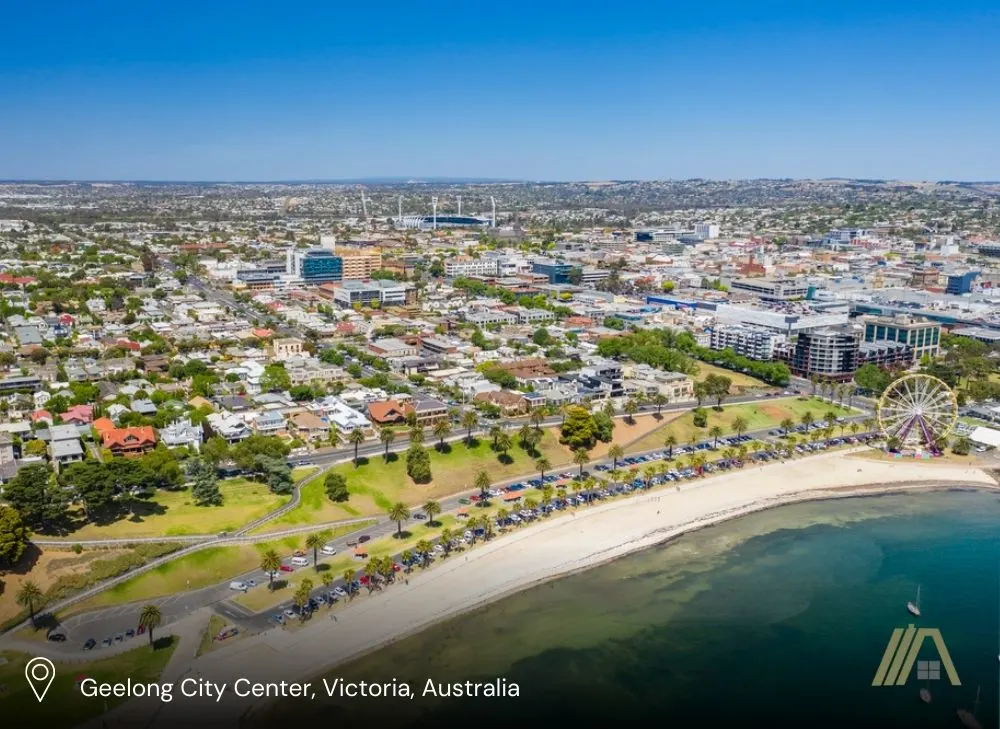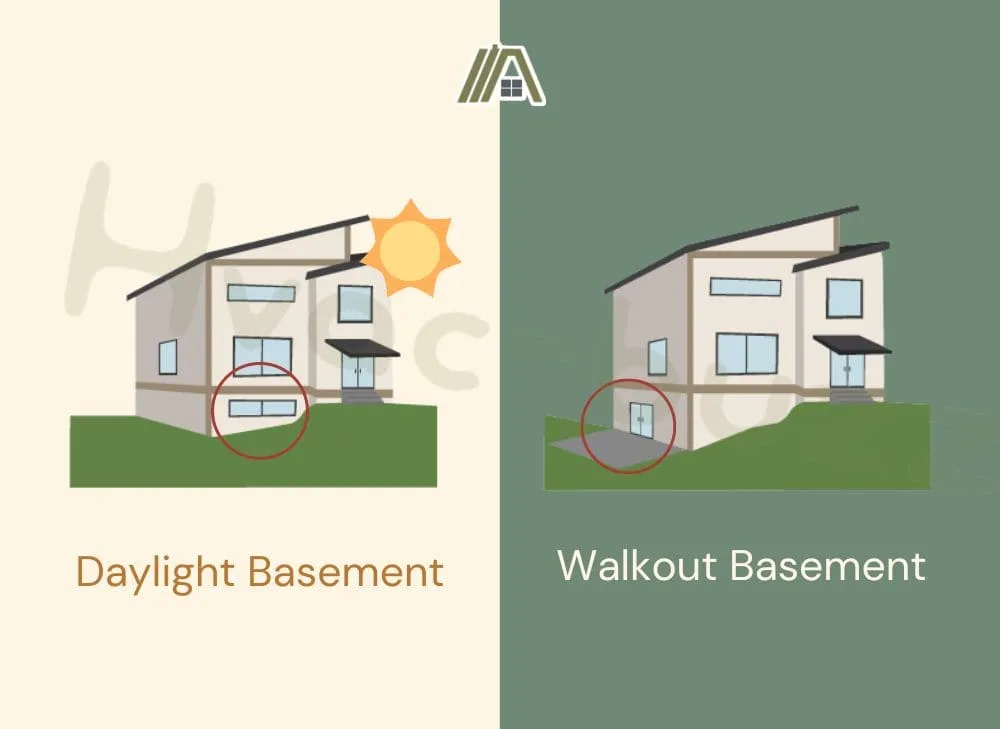Depending on where you live, basements might be the norm, or they may be rare. This has to do with a variety of factors such as the weather, soil type, and proximity to large bodies of water. In Australia, it is fairly rare to have a basement in your home.
There are a variety of theories as to why this is, including cost, the difficulties of permitting, the likelihood of severe weather events, and more. Not all of them are true or are directly related to basements, though. I will prove and disprove each of the most common theories in this article.

Likely reasons Australian houses don’t have basements:
- cost (10 times more expensive than in the US)
- the ground seldom freezes over
- the sandy soil makes excavation more difficult
- the majority of the population lives on the coastline makes building up more of a priority than digging down
Basements Are Too Expensive to Build in Australia
The first reason I came across in my research was that the cost of building a basement is what makes them so rare in Australia. This one is true.
When comparing the costs of building a basement in the United States and the costs of building a basement in Australia, the difference is truly mind-boggling.
- In the US, it costs from US$30,000 to US$70,000 to excavate and build a basement.
- For Australians, though, the cost can be up to AU$250,000 to AU$500,000.
- When converted to US dollars, the cost is about US$175,000 to US$350,000.
This is almost ten times more expensive than installing a basement in the US!
The reasons for this actually have to do with the scarcity of basements. Because there aren’t many basements, there is much less of a market for them. And because of the lack of market for them, they are much more expensive.
As you can see, this forms a positive feedback loop. There are not many homes with basements, so they are more expensive to build. But because they are more expensive to build, not many people want them, which makes them rare.

As far as which of the listed factors actually impact the scarcity of Australian basements, the cost is definitely a large factor.
But it stands to reason that there are other factors involved because something had to be the initiating reason for not building basements in Australia (before the loop began). These factors will also then perpetuate the loop.
Australia isn’t the only country where the cost of building a basement is prohibitively high. It’s also really expensive to build a basement in England.
There Are No Tornados in Australia
Another reason given for the lack of basements in Australia is that Australia doesn’t experience tornadoes, making basement shelters unnecessary. This is false.
Although it seems that Australia does not experience tornadoes, they certainly do.
The misleading information that has led to the assumption that Australia does not experience tornadoes is the fact that many Australian tornadoes aren’t reported because they formed in remote areas.
Australia does not have a defined tornado season. Tornadoes often occur in late spring to early summer but they can occur at any time of the year.
It is widely known that a basement is an ideal location to shelter oneself during a tornado. So, if most households in Australia don’t have basements, where do they shelter?
An inner room of the house away from any windows and outer walls would be an ideal place. Hiding under something like a mattress would also protect you from flying debris.
Because there are indeed tornadoes in Australia, this reasoning is not true and not a valid reason for there not to be basements in Australia.
Pipes Won’t Freeze Underground in Australia
Some people claim that basements are rare in Australia because the ground does not freeze so there is no need to dig below the frost line (there is no frost line). This is true.
In order for pipes to freeze, the outside temperature should be 20 ℉ (-6.7 ℃) or lower. In areas that experience these temperatures, basements are typically dug to house the pipes that would freeze over if they are simply buried in the ground.
Depending on the area of Australia, winter temperatures will vary. In most areas, though, temperatures do not get below freezing. So, it is a fair assumption that pipes won’t freeze in most areas of Australia. Most, not all.
In inland Western Australia as well as the southern parts of the Northern Territory, temperatures can drop below freezing, and perhaps below 20℉/-6.7℃. In this case, pipes could freeze in these portions of the country.
The reason why this explanation is still valid is that people seldom make housing design decisions based on rare occurrences. You don’t gird your roof against the weight of snow because it snows for a few days every ten years or so.
Overall, it is valid to assume that pipes won’t freeze in Australia, so basements would not be needed to keep the pipes from freezing.
There Is Too Much Red Tape Around Excavation
Upon further exploration, I was not able to find much information about the ease of getting a basement permit in Australia. So, I consider this to be false.
There are aspects of excavation that make the process more difficult and dangerous and may make obtaining permits more difficult. In this case, however, I would consider the real reason to be more closely linked to the difficulty of excavation as opposed to the red tape.
Soil Type Makes Excavation Difficult/Dangerous
The ease and expense of excavation can largely depend on the soil of the area you are excavating. Many people believe that the quality of soil in Australia is such that excavation is difficult and costly. This is true.
In Australia, it is very common to have sand or sandy soil. Sand does not retain water well and, therefore, is not as stable as organic, water-saturated soil. When excavated, sand will collapse into piles instead of keeping its excavated shape.

It is hard enough to build a home on sand, and even more difficult to excavate into the sand. For this reason, basement excavation in Australia can be difficult or even dangerous. This would explain any excessive red tape, making it a symptom of the problem as opposed to the root cause.
The structural instability of sand can prove dangerous to the house above as well as the workers excavating it.
Excavation is made more difficult because the excavation must go to a depth that reaches stable soil in order for the home and basement to be structurally stable. This requires more time and money than it would if the basement were being placed in stable soil or sandstone, a rock that is easy to excavate but stable enough to support a home.
Coastlines Make Building up a Higher Priority
Australian houses reportedly don’t have basements because people prefer to build up to take advantage of coastal views and lifestyles. This is true.
Australia is its own separate continent, and the interior is home to the outback where deserts and scrublands dominate. As such, it is only natural that most of the population will live on the coast. It has been found that more than 85% of Australians live within at least 50 kilometers of the sea.
Although not all of the 85% of the population lives close enough to the ocean to see it from their home, a large portion will have a view of the sea.
So, the construction of their home will most likely prioritize a seaside view, and building a basement would not be a priority since the ocean cannot be seen from the underground.

Basements not being a priority is also supported by the fact that the closer you are to the coast, the more likely it is that you will experience floods.
Not only is building up a priority in Australia to enable the occupants to see the ocean, but it is also a priority so that the house can be impacted by flooding as little as possible.
There is also the less tangible but real “coastline lifestyle” influence on building up as opposed to down. Even if you can’t see the ocean, people who live on the coast tend to have a more outdoor-based lifestyle and a roof-top deck facilitates this better than an underground basement.
Walkout or Daylight Basements Are More Common
So, basements are not common in Australia. The ones that do exist are more likely to be walkout or daylight basements, which work with the slope of the land as opposed to fully underground basements.
A walkout basement is a basement that is not fully underground and is likely to have access to a backyard or patio.
A daylight basement is a basement that is built on a sloping landscape and, therefore, is also not fully underground and implements windows to let natural light in.

Both of these would be ideal in Australia.
Each of these would allow for the viewing of the coast if you are close enough and, because they are not fully underground, they would be less likely to flood. They also do not need as much excavation as a basement that is fully underground, likely making the excavation process less difficult and dangerous.
This easier excavation process could even lower the cost of building a basement.
Sources
https://www.homeadvisor.com/cost/foundations/install-a-foundation/
http://www.bom.gov.au/weather-services/severe-weather-knowledge-centre/tornadoes.shtml
https://www.hopeplumbing.com/blog/2020/january/tips-on-preventing-pipe-bursting/
https://capitalbuilding.com.au/digging-deep-should-i-build-that-basement/
